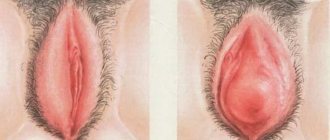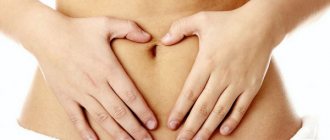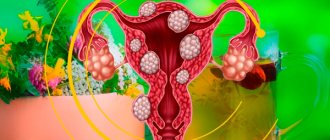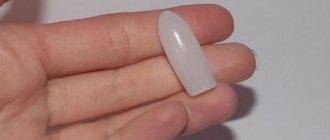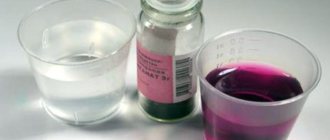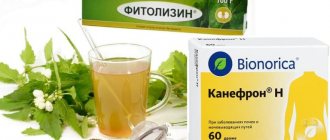If thrush develops during pregnancy, treatment at home is very effective. This disease is found in 90% of all pregnant women. In some cases, symptoms do not even appear. But in any case, drug therapy is not used during pregnancy, so you will have to make do with folk and improvised means.
What kind of disease is this
Thrush is a disease caused by a fungus of the genus Candida. In medicine it is called candidal colpitis, candidiasis.
Normally, the fungus can be found not only in the vagina, but also in the mouth, intestines and folds of the skin. In some cases, for example, during pregnancy, it begins to actively reproduce. This leads to inflammation in the body. The disease has unpleasant symptoms and consequences.
If thrush appears during pregnancy, what should you do? It is important to urgently seek advice from a specialist who will prescribe the correct treatment.
Healing oils for treatment
- Tea tree oil – effectively fights fungi and has anti-parasitic properties
In the last trimester of pregnancy, it can be used to eliminate the symptoms of thrush. It is not used in its pure form. To avoid burning the mucous membrane, mix it with base, olive or peach. For 15 ml of base take 2-3 drops of essential oil. Dip the tampon into the resulting mixture and insert it into the vagina. Leave it overnight. The course lasts about a week.
- Sea buckthorn - has virtually no contraindications, so it can be used during pregnancy
Causes
What to do if you have thrush during pregnancy? Before starting treatment for a disease, it is necessary to understand the cause of its occurrence.
Typically, Candida fungi are present in small quantities in all women's bodies. However, under the influence of negative factors, they begin to actively multiply, which leads to the occurrence of an inflammatory process. During pregnancy, thrush most often occurs when:
- Changes in hormonal levels in a woman’s body.
- Decreased immunity in physiological terms. For organs and systems, the fetus is a foreign object. Therefore, the immune system works in such a way as to prevent it from entering the body. In order not to cause the death of a child, nature provides a mechanism for suppressing protective forces. And when the immune system weakens, this contributes to the occurrence of thrush.
- The presence of infection in the body. When candidiasis occurs, inflammation can be present not only in the reproductive system.
- Taking antibiotics. Some drugs can cause immunodeficiency, as well as dysbacteriosis.
In addition to these reasons, there are the following factors that provoke the development of thrush. These include:
- unbalanced diet, which lacks the required amount of vitamins and minerals;
- some diseases, such as ARVI, diabetes mellitus, iron deficiency, etc.;
- intestinal diseases.
All these reasons can provoke the development of thrush and lead to unpleasant symptoms. They are the ones who worsen a woman’s quality of life and her well-being.
Symptoms of the disease
Women often ask a specialist what to do if they have thrush during pregnancy. Initially, you need to recognize its signs, which is not difficult to do:
- vaginal discharge increases and becomes more intense;
- they have a cheesy appearance;
- in the evening, itching, burning and other unpleasant symptoms in the vagina intensify;
- sometimes there is pain when urinating;
- There is an unpleasant sour smell.
These symptoms refer to the acute form of thrush. Upon examination, a specialist usually detects an inflammatory process. Visually, he notices redness and swelling of the vaginal mucous membranes. If the process is started, microcracks may occur.
Chronic thrush usually appears in the absence of proper treatment after the first symptoms appear. It usually enters this stage after several months of illness.
How does the disease manifest itself?
At the initial stage of development, candidiasis does not have pronounced symptoms, so pregnant women are often diagnosed with it when undergoing tests (vaginal smear) during gynecological registration. The only thing that the expectant mother may notice is an increase in the amount of discharge and possible slight itching.
If no treatment for thrush is carried out at this stage, then the symptoms of the disease will worsen:
- Increasing itching in the genital area;
- White granular or cheesy discharge appears (sometimes it has a yellowish tint);
- An unpleasant sour milk smell is felt (in more advanced cases it resembles the aroma of stale fish);
- There is swelling and redness of the mucous membranes;
- Minor touches may cause pain.
What is the danger of thrush during pregnancy?
If you add up the classic symptoms that a woman experiences when carrying a child (toxicosis, swelling, heartburn, etc.) and add the symptoms of candidiasis (burning, itching, pain), then all this negatively affects her health. However, with proper treatment under medical supervision, the development of complications is unlikely.
What to do if you have thrush during pregnancy? When hormonal levels change and the immune system weakens, the pathology begins to develop especially actively. If infected in the first trimester of pregnancy, typical signs of candidiasis may not occur. This does not mean that the disease should be forgotten. Treatment begins immediately so as not to leave the thrush any chance for further development.
Candidiasis can affect the vaginal mucosa. In the first months of pregnancy, a woman’s body can resist the proliferation of fungi, but in the 2nd and 3rd trimester these abilities weaken. With chronic thrush and lack of proper treatment, there is a risk of having a premature baby.
The disease is usually transmitted to newborns in 70% of cases, regardless of whether they were born naturally or as a result of cesarean section.
Basic rules for home treatment
Getting rid of thrush during pregnancy is quite difficult. It is necessary to follow a number of rules:
- You will have to give up underwear made from synthetic fabrics. Tight clothing is also prohibited, as it does not allow oxygen to reach the skin. Only cotton underwear should be worn.
- Pregnant women should not douche too often so as not to disturb the vaginal microflora.
- You will have to reduce your consumption of fatty and sweet foods. The diet should include more fresh fruits and vegetables.
- Be sure to monitor your drinking regime - drink at least 1.5–2 liters per day. Compotes, juices, and fruit drinks are very useful for the immune system.
- Hygienic procedures should be carried out only with plain clean water, but not less than 3 times a day.
How to treat thrush without harming the baby
For the treatment of candidiasis, the doctor chooses the most gentle means. The main goal of treatment is to prevent negative effects on the fetus and help in getting rid of unpleasant symptoms.
Potent drugs can negatively affect the baby's intrauterine development. Therefore, doctors approach the choice of drugs for treatment with extreme caution and taking into account all risks and complications.
The fungus can also negatively affect the health of the expectant mother. The vulnerability of her body during pregnancy can lead to the development of adhesions. As the fetus grows, the woman often feels pain.
You can get rid of unpleasant sensations with the help of folk remedies, but sometimes such therapy is not enough. With advanced candidiasis, medicinal infusions and decoctions are powerless.
Expectant mothers ask: “Thrush doesn’t go away, what should I do?” To determine the stage of the disease and choose truly effective drugs, it is necessary to conduct constant examinations and tests. Only their results will allow doctors to make accurate and correct prescriptions.
Medicines have been developed specifically for pregnant women, but not all of them are equally safe. There are contraindications and side effects. In such cases, patients are prescribed local remedies.
Some women may experience thrush during pregnancy from Utrozhestan. What to do? In this case, you need to contact a specialist to replace the drug with a more suitable one.
What can be used in the early stages
The first trimester is the most difficult and anxious period for the expectant mother and child. Serious changes also occur in the body, which are accompanied by toxicosis.
Thrush during early pregnancy, what to do? The occurrence of candidiasis in the first 3 months of pregnancy is especially undesirable, but it is at this time that the disease makes itself felt. It is best for a woman to avoid taking antifungal drugs during this period. It is recommended to use ointments and creams, as well as be treated with folk remedies and perform hygiene procedures with herbs.
As for choosing safe plants, only a doctor can help in this matter. In the first trimester, it is best to avoid herbal treatment. After all, some of them can increase the tone of the uterus or provoke a miscarriage.
The most dangerous plants during this period include: ginseng, aloe, basil, cloves, tansy, string and others.
Useful herbs are allowed, but only in limited quantities and with the permission of a doctor.
In the 1st trimester, douching and tampons are prohibited. After all, this can lead to miscarriage. It is best to make compresses, lotions and baths at home.
Regular products can help you treat at home
- Kefir is a safe way to treat thrush at home during pregnancy.
To restore healthy microflora and strengthen local immunity, you can use tampons soaked in a lactic acid drink, or wipe the mucous membrane with it. Many women noted positive results after 3-5 days.
It contains beneficial microorganisms that effectively destroy yeast fungus during thrush. Taking kefir internally will enhance the healing effect, so regular use is recommended.
Instead of kefir, you can take natural, without additives, yogurt.
- Honey is a disinfectant and healing product
If you are not allergic to bee products, try the following simple method: dip a sanitary tampon in honey and then insert it into the vagina. It is better to do the procedure at night, then the effect of honey on the fungal environment will be longer. The course of treatment at home is up to 12 days.
What therapy to carry out in the 2nd and 3rd trimester
Expectant mothers are worried and ask the specialist a question: thrush at 28 weeks of pregnancy, what to do? The second and third trimester are an important period for fetal development. It is at this time that a woman needs to closely monitor her health so that during childbirth she does not infect her baby with a fungal infection. The disease must be treated under the supervision of a doctor.
Any preventive measures are useful, but if thrush makes itself felt in the later stages, then urgent measures need to be taken. If the symptoms are pronounced, then professional help cannot be avoided. For mild symptoms, a woman can use folk remedies.
Thrush at 40 weeks of pregnancy - what to do? During this period, if the woman does not get rid of the symptoms of the disease, then there is a high probability that the newborn will become infected during childbirth. Therefore, it is important that the expectant mother is completely cured of candidiasis before 40 weeks.
Medicines for thrush
If thrush does not go away during pregnancy, what should you do? In this case, proper treatment prescribed by a doctor is necessary. Drugs that specialists use to treat candidiasis include:
- "Pimafucin". The drug is considered the safest and most comfortable treatment for thrush during pregnancy. Suppositories are not absorbed into the blood and therefore cannot cross the placental barrier.
- "Clotrimazole". It is available in the form of vaginal suppositories, cream and tablets. The drug is considered safe. Experts recommend using candles at night for 3-5 days.
- "Terzhinan." The drug can be used for symptoms of thrush, starting from the 2nd trimester. It is available in the form of vaginal tablets.
- "Betadine." The drug can be used in the early stages of pregnancy. Contraindications include thyroid disease and allergies to iodine. In later stages, the drug is not prescribed because its components can cross the placental barrier.
- "Livarol." An effective medication that a specialist prescribes only in the second and third trimester.
All medications during pregnancy must be prescribed by a doctor to avoid negative effects on the fetus.
Treatment of thrush during pregnancy
Treatment for thrush in pregnant women differs from standard treatment. Many methods are not suitable in this case, as they harm the unborn child. Therefore, it is more difficult for expectant mothers to get rid of thrush than for non-pregnant women. However, there are quite effective methods to do this. The first thing doctors pay attention to is the inadmissibility of self-medication. Indeed, in this case, you risk not only your own health, but also the life of your unborn baby. Therefore, the selection of medications is carried out under the supervision of the attending physician.
Drug treatment
Candidiasis during pregnancy is eliminated with the help of local drugs - they are almost not absorbed into the bloodstream, so they do not pose a particular danger to the baby’s health. Systemic antifungal agents are not recommended in this case, since they can affect the health of the unborn child. What kind of treatment will be prescribed depends on the stage of pregnancy. It is most difficult to get rid of thrush in the early stages, since it is at this time that the fetus is not protected by the placenta and is most susceptible to the harmful influence of external factors.
In the first trimester of pregnancy the following are most often prescribed:
- Pimafucin suppositories - they must be taken 1 piece per day for 3-7 days.
- Zalain - used in advanced cases when the risk to the mother’s health is higher than the possible harm to the fetus.
- Gel Kandinorm - intervaginal or for intimate hygiene. The first is used in advanced cases, the second - as a prophylaxis against relapses or in mild cases.
- Viferon is an immunostimulant necessary for the complex treatment of recurring thrush.
- Betadine - suppositories, used 1-2 times a day for 1-2 weeks.
During treatment at any time, complete sexual rest is indicated - this will eliminate the possibility of mechanical irritation of the vagina.
Treatment in the 2nd trimester is carried out with other drugs:
- Polygynaxom - vaginal suppositories with a powerful antifungal effect.
- Terzhinan is a universal drug used in the treatment of many infectious and inflammatory diseases of the female genital organs.
- Clotrimazole is a universal anti-inflammatory drug used to treat a variety of infections.
- Livarol - has excellent effectiveness against candidiasis and its relapses.
To treat thrush in the 3rd trimester, it is possible to use all of the above drugs, except those that contain iodine. It is also possible to use boric acid in glycerin - this solution helps to quickly get rid of large colonies of fungus on the vaginal mucosa. However, this is not an independent type of treatment, but an auxiliary one.
In addition to the main treatment for thrush, regardless of the stage of pregnancy, auxiliary drugs are prescribed to speed up recovery. These are various multivitamins, pre- and probiotics that normalize intestinal microflora. To exclude an early recurrence of thrush, it is necessary to simultaneously treat the sexual partner (husband) of the pregnant woman. For this purpose, he is prescribed external gels and ointments, and, if necessary, a course of systemic medications.
If the treatment is chosen correctly and carried out in accordance with the doctor’s recommendations, then the disease goes away within a week, and the risk for the pregnant woman and her child disappears. However, it is necessary to take appropriate measures to prevent relapse of the disease. They also act as a preventive measure for this disease.
Treatment at home
There are various folk remedies that can help treat thrush. However, to avoid complications, they should be taken only after consulting a doctor.
Treatment of thrush during pregnancy at home involves:
- Baths - add a solution of soda (1 tbsp) and iodine (0.5 tbsp) to 10 liters of warm water. You need to sit in such a bathroom for 20-25 minutes. Repeat the procedure three days before bedtime.
- Washing with herbal decoctions . For this purpose, medicinal preparations are used: oregano, bark, oak, calendula. You can also add thyme and nettle. The mixture must be boiled with two glasses of water. Every day we prepare a fresh portion of the broth for hygiene procedures.
- Douching . A procedure that requires extreme caution. It is carried out strictly with the permission of the gynecologist, otherwise it can harm the unborn child! For douching, decoctions of some herbs are used, but burdock decoction is preferable.
- Compresses are an ideal option if douching is prohibited. A medicinal mixture of hydrogen peroxide and brilliant green is applied to a gauze swab. To do this, add the same amount of peroxide (3%) to 1 part of water and add a few drops of brilliant green. Soak a tampon in the liquid and clean the vagina from the cheesy coating. Please note that the procedure is not pleasant and is often accompanied by a feeling of itching and tingling.
- Compresses from carrot juice on the outer part of the genital organs - moisten gauze with this juice and apply for 1-2 hours. The juice is also recommended to be consumed internally - it strengthens the immune system and increases the body's resistance to Candida fungi.
Folk remedies are not able to get rid of thrush - they act only as an addition to traditional treatment.
Prevention of thrush in pregnant women
Personal hygiene plays a big role in this matter - this is the main condition for the health of the genital organs. When a woman is “pregnant,” the amount of vaginal secretion increases sharply, so it is important to be more zealous about this issue. After getting rid of thrush, do not use soap and hygiene products with lactic acid - in everyday life this is useful, but if there is a risk of candidiasis, it increases the likelihood of this disease. Try to wear only high-quality cotton underwear. And if you use panty liners, change them more often - every 3-4 hours.
When washing, use only clean running water. If desired, perform hygiene with chamomile infusion and calendula 2-3 times a week. Also buy gels with a neutral pH. In the initial stages of thrush, when itching appears, you can wash yourself with a weak solution of soda (without injecting it orally).
It is also important to monitor your diet - exclude from your diet all foods that create a favorable environment for the development of candidiasis. Sweets, baked goods, kvass, soda - all this is not the healthiest food for pregnant women (for various reasons). By consuming these products, you reduce the effectiveness of treatment and create a favorable environment for recurrent thrush.
This video provides a discussion of thrush, details about the ways of occurrence and methods of treatment.
Folk remedies
If for some reason medications are contraindicated for a pregnant woman, then she is prescribed traditional medicine.
Women are interested in what to do if they have persistent thrush during pregnancy. To get rid of the symptoms of candidiasis at home, decoctions and infusions of medicinal herbs are additionally used. Folk remedies help strengthen the immune system and create an alkaline environment in the vagina, which is especially harmful to fungi. These include: oak bark, chamomile, calendula, rosemary, yarrow, celandine, chicory root. They form a protective layer on the vaginal mucosa. Natural antiseptics relieve itching and burning. Herbs can be used individually or made into infusions.
If they are purchased at a pharmacy, then the instructions on the package provide precise information about use. The raw material (1 glass) is poured with a liter of water, boiled, infused and filtered. You can not only douche with decoctions, but also drink. Herbs have anti-inflammatory and immunomodulatory effects.
To treat thrush, your doctor may advise:
- rubbing with carrot juice, 3% hydrogen peroxide (diluted with water);
- irrigation using decoctions of burdock roots, birch buds, juniper or diluted oil of oregano;
- douching and washing with solutions based on calendula and cinquefoil.
The most effective remedies for thrush include:
- Soda. Its solution with water can be used for douching and washing. It is able to restore the vaginal microflora and prevent the proliferation of fungi.
- Honey. If there is no allergy to bee products, tampons soaked in the product are administered.
- Tar soap. It is grated and diluted with water. Used for baths and washing.
In the treatment of thrush, many folk remedies have proven their effectiveness and safety. Therefore, this treatment option should not be excluded.
ethnoscience
So, how to treat thrush during pregnancy with folk remedies, what recipes can be used?
- We can say that the traditional one is washing with soda. How to prepare the solution? Take one liter of warm boiled water and dissolve two teaspoons of baking soda in it. Wash yourself with it several times a day. But such a remedy will help only with minor symptoms.
- Use a soda solution for douching. To do this, you should prepare a solution that is not as concentrated as was described earlier. Now dissolve one teaspoon of soda in one liter of water. You can douche twice a day, and carry out this procedure until the symptoms disappear completely. However, do not forget to disinfect the syringe every time.
- Sitz baths. To do this, you will need decoctions of various herbs, soda and iodine. There are two recipes.
First. Mix a tablespoon of baking soda, half a tablespoon of iodine and a liter of warm water. Pour this solution into a bowl and sit in it for fifteen minutes. This must be done at night, for four days in a row.
Second. Combine calendula flowers and oak bark in a 50/50 ratio, and prepare a decoction from this. After this, dilute it with half and half water and add it to the bath.
- Use of tea tree oil. This drug copes well with microbes and does not have any harmful effects on the body of a pregnant woman. But it cannot be used in its pure form, so add vegetable oil to it. To do this, mix four drops of tea tree oil and twenty milliliters of vegetable oil. Take a tampon, soak it in the resulting solution and insert it into the vagina. But you can lubricate the mucous membrane with your finger. Such procedures need to be carried out twice a day, seven days.
Nutrition
What to do: thrush does not go away during pregnancy? A woman should carefully monitor her diet. She needs to give up baked goods, sweets, smoked, pickled, fried and fatty foods, ketchup, mayonnaise, kvass and coffee. Such products are not recommended for expectant mothers with candidiasis.
It is advisable that the diet include vegetables, poultry, fish, wholemeal bread and dairy products.
Recommendations
To avoid relapse of the disease, both sexual partners (woman and man) must undergo candidiasis therapy. During the treatment period it is recommended:
- Refuse sexual contacts;
- Reduce physical activity;
- Eliminate sweet, starchy and spicy foods from your diet;
- Do not use soap for washing (carry out the procedure with ordinary boiled water);
- Wear loose underwear, preferably made from natural fabrics;
- Enrich your diet with dairy products, vegetables, and fruits.
Prevention measures
If you suffer from thrush during pregnancy, what should you do? To prevent the risk of recurrence of the disease, you should follow some rules:
- a woman needs to eat a balanced and nutritious diet;
- get enough sleep constantly;
- it is important to observe the rules of personal hygiene;
- do not wear thongs or synthetic underwear;
- periodically arrange air baths.
Pregnant women should avoid mindlessly taking medications, especially antibiotics. After all, this can lead to candidiasis.

